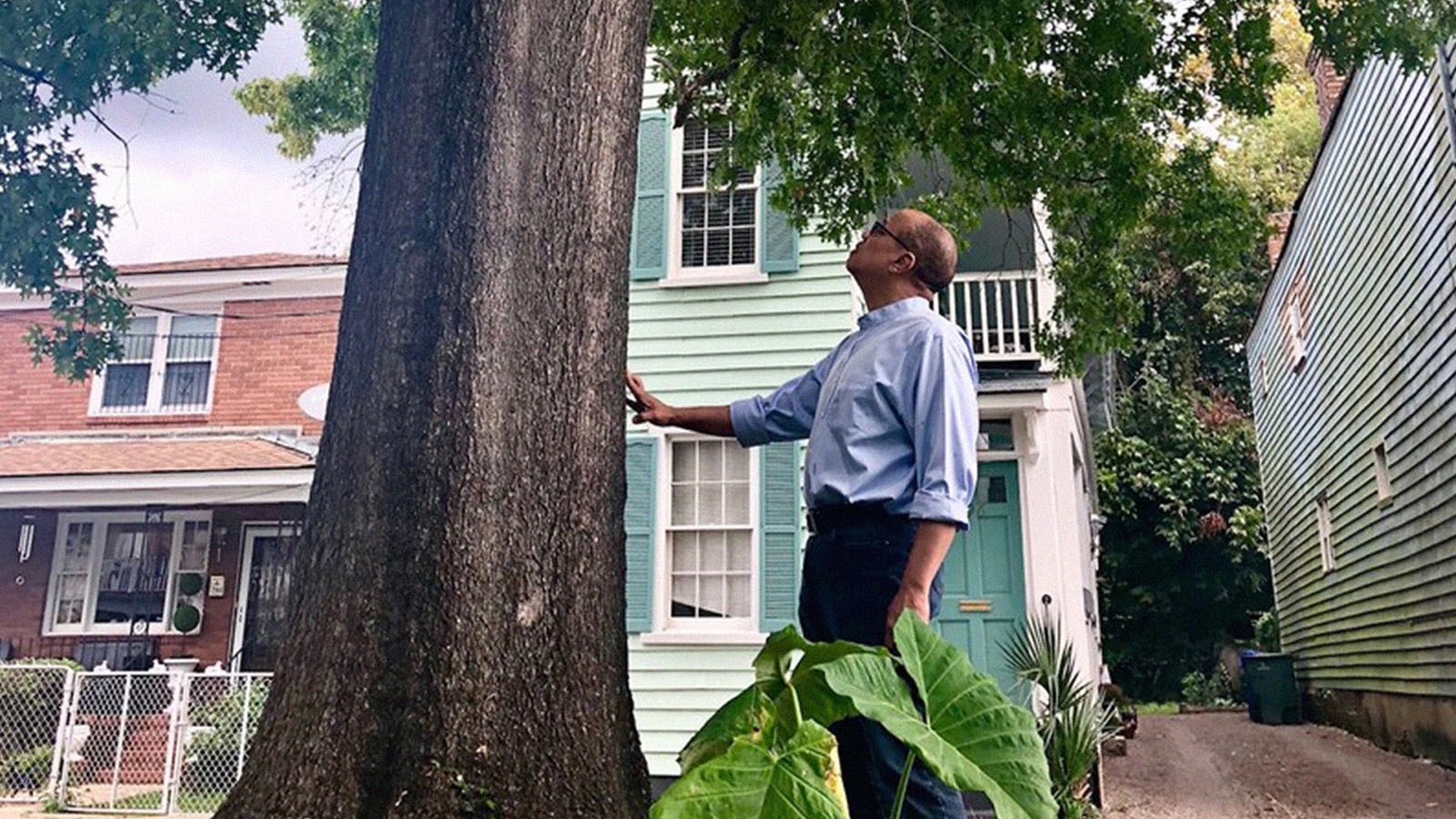The United States of America is one of the greatest countries in the world…AND racism is built into the fabric of American society. Like a college lecture or start of a thesis, Jeffery Robinson deliberately and calmly walks the audience through these contrary but true statements, presenting his case. As someone who’s sat through a lecture like this before, Robinson’s version has a more empathetic tone to help the uninformed and misinformed consider that this version of history probably hues more closely to the actual version of events in US History: a perfect documentary for a junior or senior in high school.
Robinson is a brilliant man: a Harvard educated lawyer who’s worked in criminal and social justice for decades. This documentary, put on by the Who We Are project which he is an executive director for, uses lecture clips from Robinson to an audience and works in pieces of US history into the story he is presenting. On the lecture side of the doc, Robinson smartly uses real quotes/location shoots to bring us to the places of some stories from the US’s racial history. And every now and again, Robinson takes us to his hometown, giving us some background into his upbringing and his small piece to add to that complicated history.
For anyone with the slightest bit of interest in the history of race (particularly African American) in the United States, a lot of the stories Robinson tells will probably be familiar to you (except maybe the Tulsa genocide: THAT should be taught in school for sure). So what does Robinson do differently here; what does he bring to the table? His first big thesis is the diametrically opposite parts of the US past: that it stands for something great and good…and it is also fundamentally built upon racism. That fundamental inherent conflict fits American racial history like a glove. There’s periods of progress (Reconstruction in the South), followed by different types of systemic racism (Jim Crow), which then get found out and fixed (Civil Rights), only for the rascism to morph again (war on drugs, redlining). The US gets to these tipping points of real progress and change, only to be undercut by some new challenge/discrimination to overcome. This explanation also succeeds hopefully and getting through to what I believe to be his target audience: innocent, but uninformed white people/people in power, because it doesn’t immediately blame white people for all of society’s ills: simultaneously they can be a force for good or a roadblock depending on the issue. It’s just important to know that duality is always present, and people in power should think a little harder about if they are a helper or inhibitor to progress and equality.
Which brings us to the 2nd thing Robinson brings to the conversation: George Orwell’s 1984. This quote in particular “Who controls the past controls the future; who controls the present controls the past.” He gently reminds everyone that basically until the middle of the 20th century, white people in power controlled the present, therefore, the past and future as well. He points this out by using real quotes from those famous historical figures that happen to also supplement his “US duality” theory. At this point, I think most people know that almost all of the founding fathers of the US were slave owners themselves (Robinson uses ledgers to point that out). Or, how currently white people claim the Civil War was about “Southern pride and values/the economy” while that entire economy was built around free black labor, and each state had in its Secession papers that “slavery” was a primary reason they wanted to leave the US. But the best example was Robinson using Donald Trump’s statements about Andrew Jackson and the Civil War, which many might believe is true…only for Robinson to use Jackson’s own life/words to disprove everything Trump said about the 7th US President. Robinson clearly sees this as one of the next, growing roadblocks (literally whitewashing US history), and the Who We Are project wants to set the record straight.
But maybe the best way Robinson drives the point home is his personal stories, which really pack more of an emotional wallop than I was expecting. It’s a great example of how to come together as a multicultural society and build for a better tomorrow, to eliminate the icky parts of the US’s dual conflicting existence. Robinson himself is a living embodiment of the best of America, and Who We Are hopes to make all of us to find our best nature and give the Chronicle of Racism in the United States a real, tangible, endpoint.

